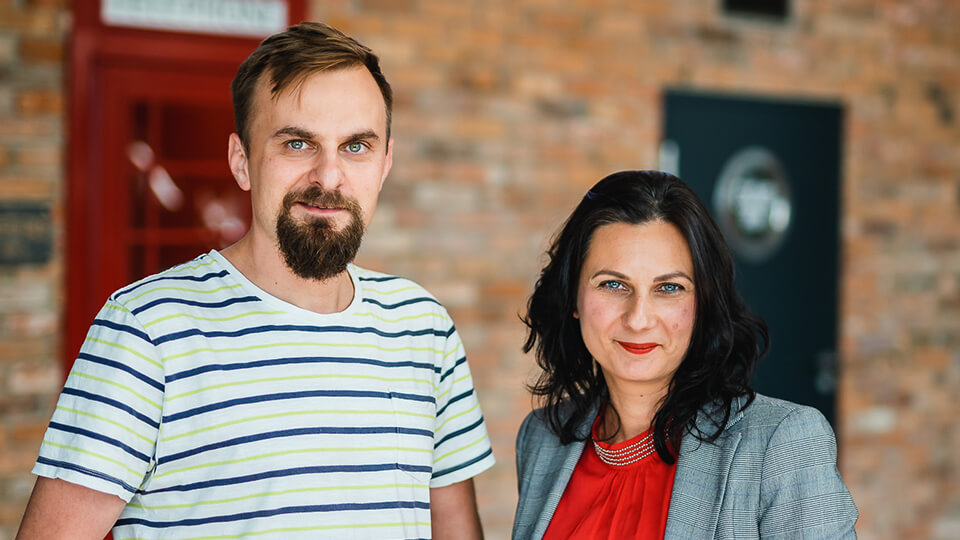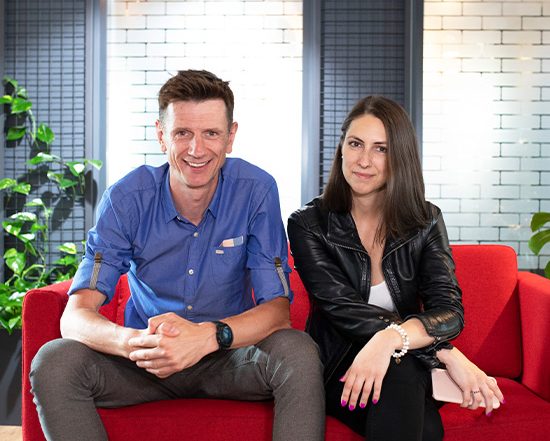
You need a mentor in the VUCA world part 1

Interview with Joanna Malinowska-Parzydło, mentor, Executive Partner at the Younicorn consulting company, founder of the Polish Mentoring Association, coorganiser of the Mentors4Members programme at Brain Embassy, a Brainer.
You need a mentor in the VUCA world
Mentoring is a method for people to develop through experienced people who have already gone along the road that their mentees are only entering. It could be a career path, preparation to a new role in their personal or professional life and important changes, developing own business or profession, or participation in new projects. This method, as old as time, and present in many spheres of life, slightly forgotten due to the modern learning techniques, is currently calling for regaining its appropriate status in the professional and business world, as well as in the private domain.
Mentoring has different facets. It is already developing actively in entrepreneurship, banking, and at universities, as part of corporate programmes and those linking business practitioners with talented students and entrepreneurs. An example of such a programme is Mentor4Member, which Younicorn and HRInfluencers realise for Brainers together with BrainEmbassy.
We encounter mentoring in healthcare, culture, management of small and medium enterprises, in public administration and non-government organisations. It has already occurred in the offer related to professionalisation of the trainers and coaches who are active on the Polish market. It is mentioned in the halls of the Polish parliament, and in NGOs. It constitutes an interesting proposition for early-stage entrepreneurs entering the business world, and the experienced ones who got stuck at some stage without any idea what next.
Mentoring is not a fashion but a positive influence on a person’s development
Mentoring is not another trendy topic – it is a demanding relationship based on trust, experience sharing and mindfulness of others.
Mentoring is about sharing experience but not ready-to-use solutions for every problem - only the study cases worth mulling over. These should be inspiring but unique stories from the mentor’s life, allowing the mentee to fill in the gaps in the latter’s own experience. And if stories are key in mentoring, a good mentor should acquire storytelling skills instead of preaching about the moral of the story. Sharing one’s own story should be authentic, honest, free of evaluation or expectations that the mentee will necessarily continue the path. Thanks to a good mentor, a mentee will more consciously write their own story based on their talents, aspirations and possibilities.
Development with a high ROI
The world of business, particularly in the times of crisis, appreciates effective, efficient and inexpensive methods of developing employees, with mentoring as one of the top ones. Business people have become aware of the fact that competing requires a new approach to customers’ expectations, the experience offered and one’s own development. VUCA (that is, the world described with the following features: Volatility, Uncertainty, Complexity, and Ambiguity) requires a lot of flexibility and decision-making in uncertain conditions. Most cases occurring nowadays unexpectedly in everyday life and in business, will never go to handbooks or manuals. But there will always be someone who is over some similar experiences; a person who already knows that any difficult situation can be solved in many different ways; who knows what costs need to be borne sometimes, how to get over a failure, dust yourself off, adjust your crown and move on without losing your enthusiasm. Many young and talented entrepreneurs and candidates on the job market can boast talents and some knowledge and skills. However, the value missing most among them is self-awareness, useful behaviours and battle-tested tactics in the fast changing reality. Such are the strategies and knowledge coming from difficult experiences, verified in real life and on the market and shared by mentors.
Experience recycling
The terms experience recycling and upcycling were coined by my business partner Marek Parzydło - interestingly enough, during the event closing the 3rd edition of the Mentor4Member programme in which he participated as a mentor.
An experienced person feels a natural need to share experience. At a certain level of life, they can come to a conclusion that they have something valuable acquired in their life and professional experience, and it would be a pity for it to go for nothing - it would be in the best common interest to pass it on to someone and let it rotate among other people.
Branded mentoring, that is mentoring according to Marek Parzydło
“It turns out that a mentoring relationship involves experience recycling. Due to the responsibility understood this way - I became a mentor. I decided I have something valuable and it is in the common interest to give it back to someone and send it round again. Thus, describing such cases as “how I founded/acquired/developed or wound up a business” or “how I advanced/ruined or revived my career” could still come in handy for someone else. But that’s not all as we also have upcycling, thanks to which an old object can gain even more value.
How is it possible? This is exactly because of the new contexts and interpretations which will occur owing to a totally new view on a given case, both by the mentee and the mentor. One could say that a reflection on “what comes out of this experience today?” is interesting and inspiring for both sides. It is a reason for the mentor to feel satisfied if the mentee admits: “I will do it like you did then” or “I will be avoiding your mistakes”. The really surprising moments are those when I discover as a mentor that what I keep in my memory as my experience is not only the empiric knowledge but also impulsive evaluations, rationalisations, false beliefs and the like rubbish.
In that it may turn out that the shelf where we keep our success stories may hide some Pyrrhic victories or some that do not mean much today. The ostensible failures or retreats might seem something totally different today. Sometimes it’s only after many years that we find out to have won or defended something much more precious than the stake that we were fighting for while aiming for a so-called career, that is, values, the sense of one’s work, or one’s reputation.
Because mentoring is a relationship aimed at sharing and reinterpreting experiences, the benefits can also be mutual. Thus, the attitude of responsible sharing is generously rewarded.¹
To be continued..








